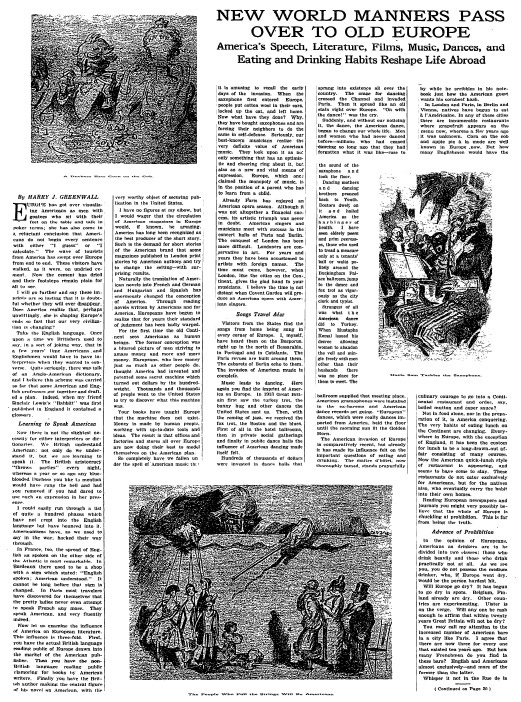New World Manners Pass Over to Old Europe
America's Speech, Literature, Film, Music, Dances, and Eating and Drinking Habits Reshape Life Abroad
American culture was influencing Europe’s taste in everything from dances to music to women’s shoes, reported an October 1925 New York Times Magazine article – including Europeans saying the phrase “I guess.”
The journalist Harry J. Greenwall wrote that the phrase was considered a stereotypical American expression circa 1925. When I searched the phrase’s use in books over time, using Google Books Ngram Viewer, an absolutely massive spike emerges around approximately 1918 – never remotely equaled in the 107 years since:

The phrase had actually mostly dropped off by 1925, when this NYT Mag article was originally written.
But why did the phrase soar in popularity around approximately 1918? Curiously, I cannot find a single explanation anywhere on the internet written by an actual human. But ChatGPT, offering its best guess, suggests that it was a combination of:
The rise of authors like Ernest Hemingway, who wrote more “realistically”
The influence of American vernacular worldwide, when the U.S. emerged as a dominant superpower after World War I
The increase of “softeners” in language:
ChatGPT: “Around World War I, social norms around deference and self-expression softened slightly — especially in mixed-gender and cross-class speech. ‘I guess’ functions as a softener, a way to hedge or qualify a statement. That kind of polite hedging became more acceptable, especially in conversational writing or dialogue.”
If any actual human can provide a further explanation, please comment below. Perhaps a linguistics or history professor?
New World Manners Pass Over to Old Europe: America’s Speech, Literature, Film, Music, Dances, and Eating and Drinking Habits Reshape Life Abroad
Published: Sunday, October 11, 1925


